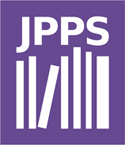The Journals Online platforms (JOLs) have always had assessments of all journals applying to join the hosting platforms, but, more recently, wider trends in research communications have led to a need to expand and formalize this assessment process. The result is the Journal Publishing Practices and Standards (JPPS) framework, which is being applied initially to the JOLs journals but could be used to assess other Southern – and global – titles.
The Journal Publishing Practices and Standards (JPPS) framework and assessment process was initially conceptualized by the Director of African Journals Online (AJOL) in 2014. The JPPS framework criteria, processes and implementation plan were then jointly developed by INASP and AJOL. INASP trialled and then implemented the assessments with the journals on several of the largest JOLs during 2016/17.
The JPPS framework assesses journals against a detailed and transparent set of criteria. The framework is intended to give researchers a greater feeling of trust that they are submitting their work to quality publications and will, hopefully, encourage them to submit their work to regional journals. This will ensure that Southern research is easily available to those that need it most.
The JPPS framework provides:
- An educational tool for journals publishing from developing countries towards raised awareness, understanding and implementation of internationally accepted best practice publishing standards
- A more detailed and formal process for deciding on the inclusion or otherwise of new titles to the JOLs platforms
- A clear process by which each journal can improve their practices for improved publishing quality
- Public acknowledgement for JOL journal partners that are already attaining internationally recognized high standards of publishing and editorial best practice
- Clear guidance for researchers using the JOL platforms that partner journals vary in degrees of attaining publishing best practice, and information of the standards attained by each journal
- A means for authors to select trusted titles on and from their own contexts to submit manuscripts to instead of overseas journals. This could make relevant content more easily available to other researchers in that country and region, as well as strengthening the local knowledge sharing system
- A potential tool for developing country university administrators and research offices to ascertain the publication record of their academic staff for job application and promotion purposes.

